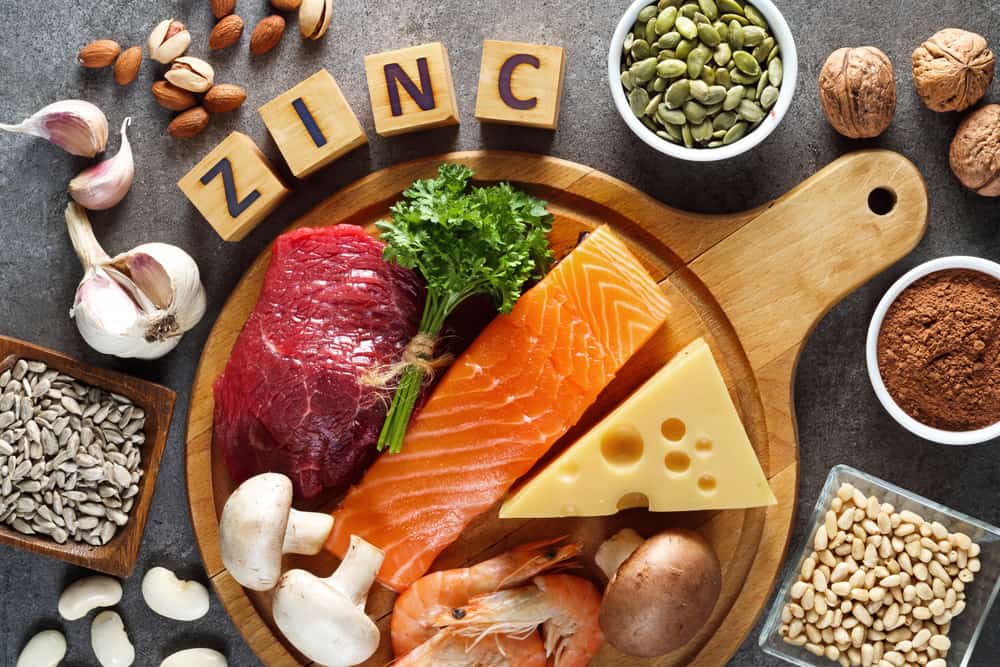Our immune system is our main source of defense against different foreign bacteria and viruses. Imagine what would happen if it stopped working. Needless to say, we won’t stay alive for a long time. This establishes the fact that we require a healthy immune system and it is only possible when all the components of this system are kept in balance.
Sometimes we cannot function without help from someone. Our immune system is also like this, it needs helpers to work properly. One of those helpers is the mineral named “Zinc”. It has effects on several aspects of our immunity. Not only does it control our vulnerability to infections through the skin but also plays an important role in gene regulation within the white blood cells. Research tells us that zinc is the main player in controlling inflammation at the site of infection. When something breaches our body’s natural defense system, our brain signals white blood cells to start their functioning. This usually causes inflammation but sometimes due to autoimmune disorders, this inflammation gets out of control. Zinc has anti-inflammatory properties which enable it to control inflammatory cytokines. Moreover, it functions as an antioxidant and is essential for the activation of several anti-oxidant proteins. Another important effect that zinc has on our body is that it is crucial for our DNA stability. Studies conducted in lab environments show that deficiency of Zinc can lead to damage to DNA. It also has functions as a cofactor for more than 300 different biochemical reactions occurring inside our body.
Read Also:
- Top 10 Antioxidant Superfoods You Shouldn’t Ignore I What Are Antioxidants?, Types, Benefits
- Heart-Healthy Foods: 8 Foods That Are Good for Your Heart I Secrets to a Healthy Heart
- Foods High in B12: Top 12 Foods That Are High in Vitamin B12
- Food Items That Can Treat Anemia: 15 Best and Worst Foods For Anemia Patients To Eat
- The Best Low-Carb Foods I 12 Healthy Low-Carb Foods That Taste Incredible You Shouldn’t Ignore it!
- Low Fiber Meal Plan: List of 18 Low Fiber Foods and Foods to Avoid!
- Low Sodium Foods | Top 20 Low Sodium Foods | List for How to Start a Heart-Healthy Diet
- High Fiber Diet | What Are Fibre and its Benefits? | 14 High Fiber Foods You Should Eat!
Zinc performs so many functions in our body that we probably cannot count them in one go. It has a lot to do with the activities ranging from our immunity against pathogens to the processes of transcription and translation. Conclusively it is extremely important to have an adequate amount of Zinc in our body. Just like other minerals and nutrients zinc also has a specific optimum range for each age group and gender. Given here is an estimate of how much Zinc we need in our daily diet to meet the requirements of our body:

- For newly born babies age ranging from 0 to six months, 2mg of Zinc is adequate.
- For 7 months to 3 years aged babies, 3mg of Zinc is enough.
- For children between 4 to 8 years, the daily zinc requirement is 5mg.
- Male individuals with ages ranging from 9-13 and14-18 years require 8mg and 11mg of Zinc daily.
- Females with ages ranging from 9-13 and14-18 years require 8mg and 9mg of Zinc daily.
- Pregnant women below the age of eighteen need 12mg of Zinc, whereas pregnant women above eighteen years of age need 11mg.
- Lactating women of the same ages need just one milligram more than what is required for pregnant women.
The daily requirements need to be met properly. Since zinc is an essential mineral it has to be taken through diet. The daily requirements can be met by eating certain foods Following are some of the common foods which have a high zinc content in them:
